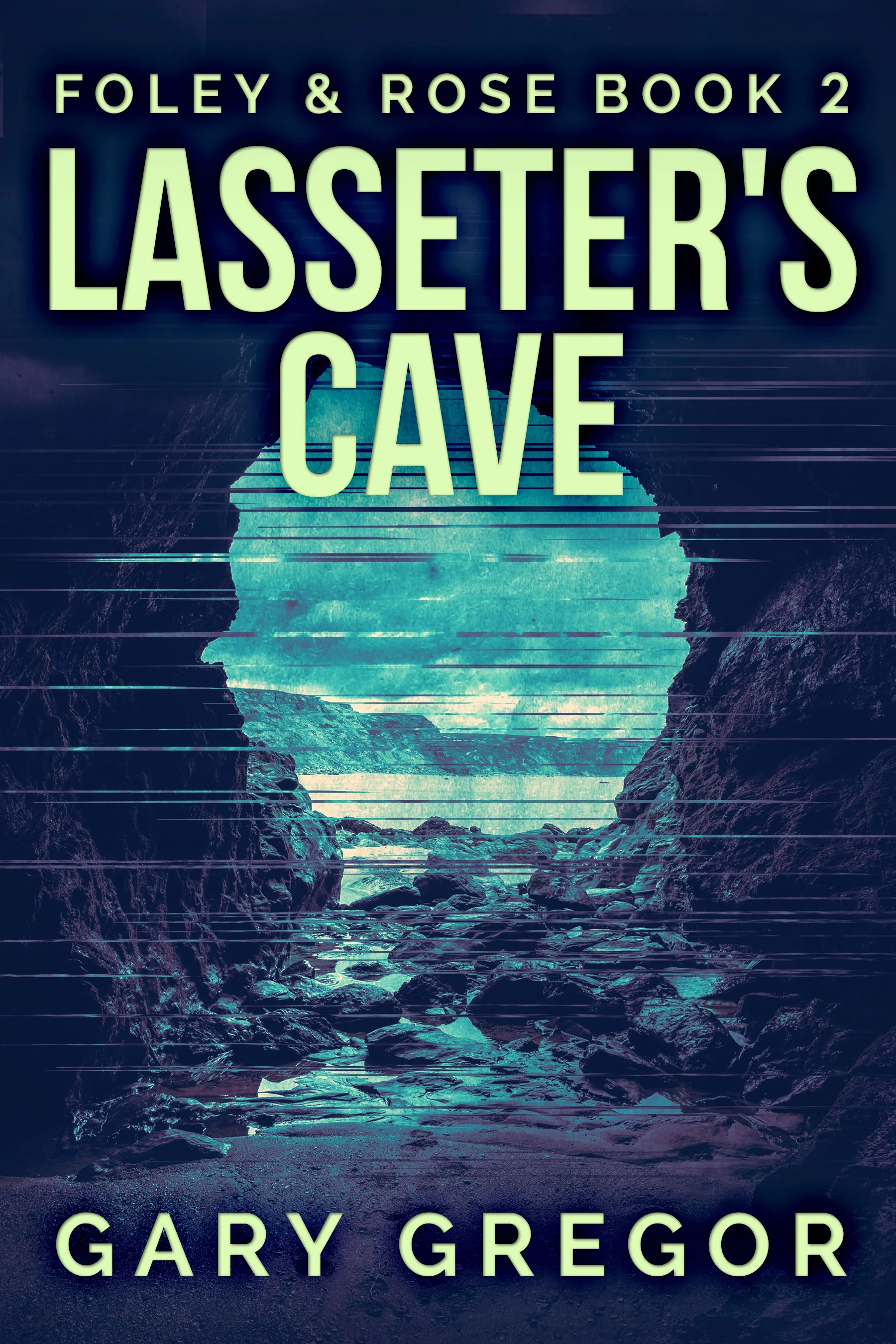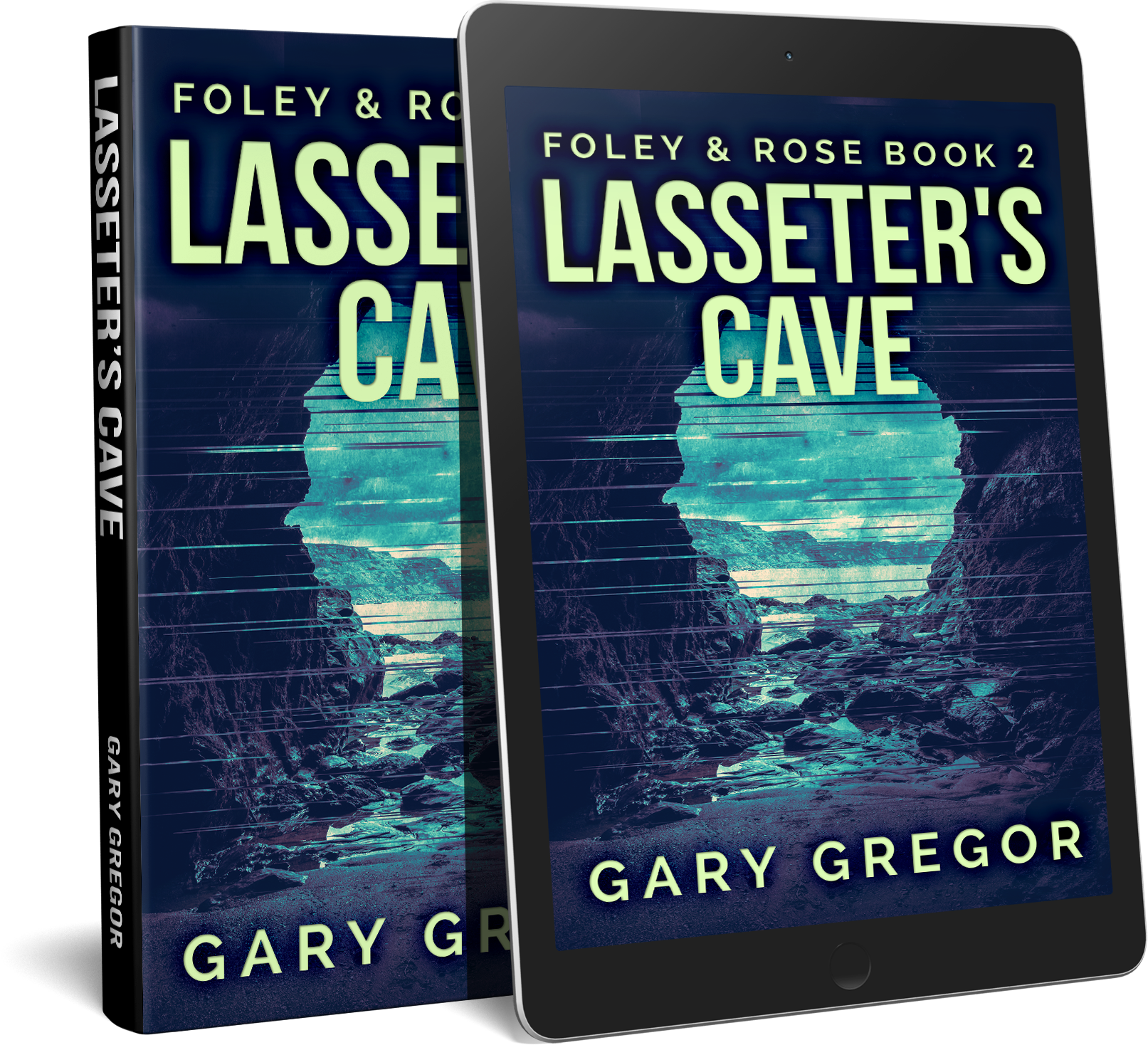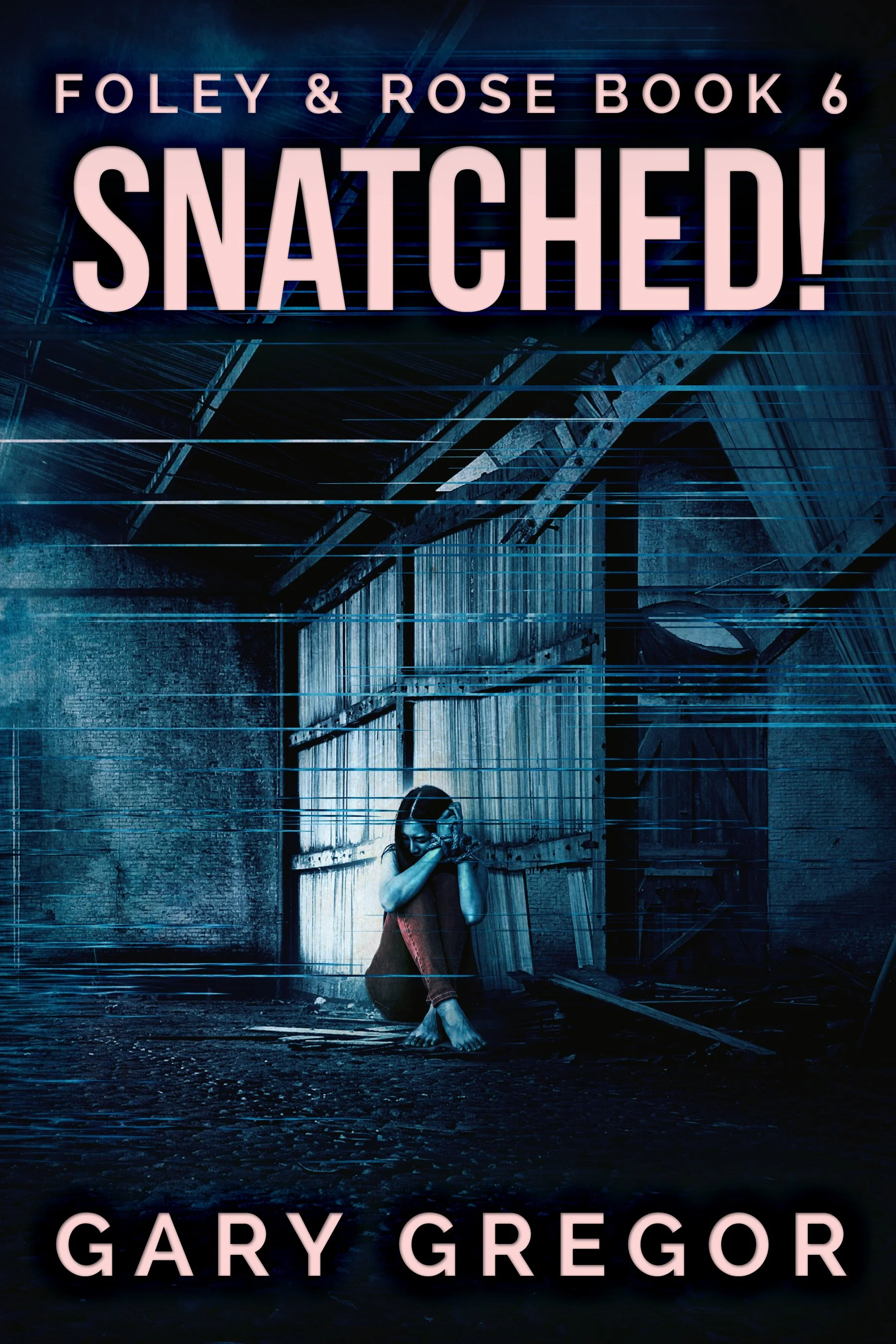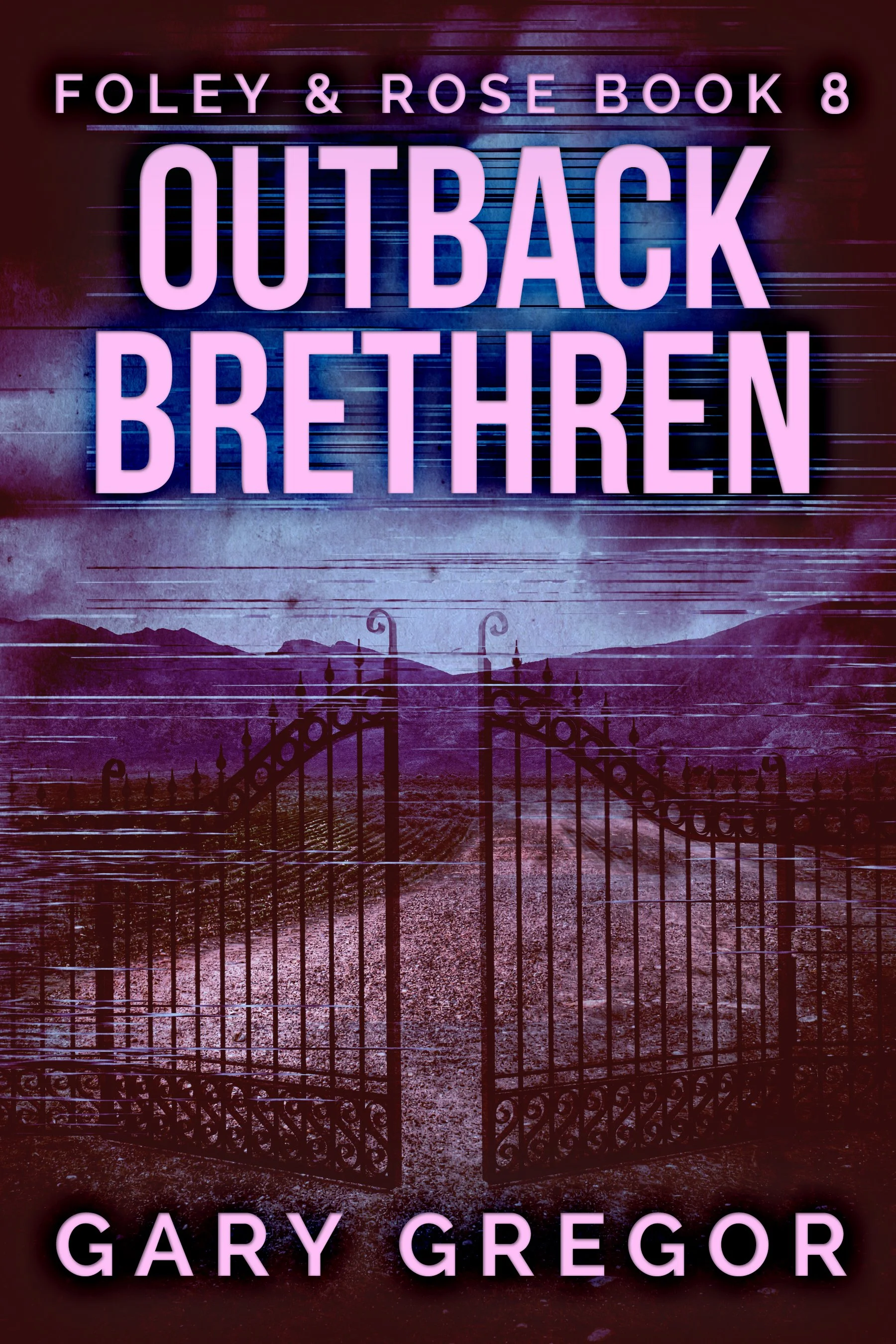Lasseter's Cave (Foley & Rose Book 2)
Book summary
"Lasseter's Cave" by Gary Gregor takes readers deep into the Australian outback, where a neurosurgeon and his family meet a tragic end. Detective Inspector Russell Foley and Detective Sergeant Sam Rose navigate the harsh, mysterious terrain of Harold Lasseter's legendary "Lost Reef of Gold" to unravel this perplexing case, contending with the possibilities of gold fever, a deranged killer, or something more sinister. This thriller blends the allure of the unforgiving outback with a gripping murder mystery.
Excerpt from Lasseter's Cave (Foley & Rose Book 2)
Prologue
Eighteen Months Ago
Terry Jenkins had mixed feelings. His time in Australia was nearing an end. He was driving to Perth in Western Australia to catch a flight back to his home in England.
Terry missed his family and looked forward to seeing them again. Contact with his parents and his brother back home in Somerset over the previous year was limited to periodic, brief, long-distance telephone calls, and the occasional postcard sent from various locations in Australia.
He was also going to miss Australia. Twelve months was not a long time to become familiar with a strange, foreign country, particularly one as vast as Australia, but it was long enough for Terry to fall in love with Australia and its citizens.
Terry had been working in Australia on a visa for almost twelve months, and admired everything about the country some people in England still referred to as the antipodes. Given his enthusiasm for everything Australian, its people, its weather, and its lifestyle, he believed he could live the rest of his life in Australia, and had already decided one of his first priorities when he returned home would be to investigate the possibility of emigrating.
His parents would not like the idea, but he was determined, and the prospect of a future filled with sunshine, pristine beaches, and the prettiest girls he had seen anywhere was far more appealing than the dour, cold, grubby backstreets of Bridgewater in the Southwest English county of Somerset.
Terry’s desire to live in Australia was decided soon after he first became aware of Harold Lasseter’s bold expedition into the remote and unforgiving Australian outback. Lasseter was looking for a magnificent reef of gold he was convinced actually existed, and swore he had seen with his own eyes. Terry wanted to visit the place the hapless adventurer allegedly rested before subsequently perishing after setting out on his ill-fated trek to reach the Olgas, one-hundred-and-forty kilometres to the east.
He still had a few days before his scheduled arrival in Perth, and could easily have flown to the Western Australian capital from Yulara where he had been working, but his desire to visit Lasseter’s last known place of refuge was too strong.
The Lewis Harold Bell Lasseter legend captivated Terry from the first time he learned of it while watching a late-night television documentary. Lasseter’s story epitomised the adventurous, carefree, “have a go” attitude that seemed to be ingrained in the Australian psyche, Terry thought.
He had a car, not a particularly good car in relation to its aesthetics, but the imperfections in the form of mild body rust, more than a few panel dents, and one door a different color from the other three, were of little concern. Since he purchased the car in Perth, soon after he first arrived in Australia, it had given him no trouble, and had taken him across the great Nullabor Plain, into South Australia, and later to many other parts of the country.
Crossing the rough, dusty, corrugated Great Inland Road, while a somewhat daunting prospect prior to actually attempting it, ultimately presented no real challenge other than the time it took to traverse, and the somewhat uncomfortable ride it presented.
Terry stood on top of a moderately steep rise, shook off his backpack, and considered the landscape around him. Directly in front, at the base of the incline, was a large, dry waterhole. He imagined how fantastic it would look if it were filled with water, and how different things might have been had it been filled with water back when Lasseter sheltered in the cave not far away. He slowly turned and gazed at the surrounding countryside. He was looking forward to this experience, and now that he was actually here, it was even better than he could have imagined.
There were many who would disagree with Terry’s assessment; this was a remote, isolated, desolate place where most folk would never dare, or even want, to venture; there were no McDonalds, KFC’s or Krispy Kreme Doughnut stores out here. For Terry Jenkins however, the attraction was the lack of commercialisation. Just as the sand and rolling surf of the coast, and the beautiful bodies flocking to the sunbaked beaches were a magnet for Aussies and tourists alike, this place was quintessentially Australian. This was the Outback.
As he slowly turned, taking in the vista stretching for hundreds, and in some directions thousands of kilometres around him, he found himself facing back the way he had just come.
He froze. A man stood at the bottom of the incline smiling up at him. The stranger was holding a gun, and it was pointed up the slope, directly at him. Terry stared at the man. They locked eyes across the short expanse of ground separating them. There was something about the way the stranger smiled; more sinister than welcoming, he thought. A strong feeling of dread washed over the young Englishman.
“Hi,” Terry said, tentatively.
The man did not respond.
“I didn’t expect to find anyone else out here,” Terry continued. His eyes were drawn to the rifle, and the threat it represented.
As he watched, the man raised the barrel of the rifle. “Wha… what do you want?” Jenkins asked, the first icy fingers of fear beginning to flutter in his belly.
“You shouldn’t be here,” the man said calmly.
“I… I was just about to leave,” Jenkins said. He took one cautious step towards the base of the incline.
The man fired. The bullet crossed the short distance between the two men in a millisecond. It hit Jenkins in the throat. Blood, bone and tissue sprayed haphazardly from the back of his neck. The impact threw him backwards and he crashed to the ground, his body raising a small cloud of dust that quickly settled around his prostrate form.
Chapter One
When the shots rang out, Assi Shaloub was crouched under the low ceiling at the back of the cave, peering with intense, single-minded curiosity into dark crevices never touched by the sun.
The shots, three of them, came in quick succession and without warning, shattering the tranquillity embracing the vastness of this place. Assi had heard the sound of gunshots many times, albeit not since he had taken his new young bride and fled his war-torn homeland for the safety and future promise of his adopted country. The sound was unmistakeable. Suddenly, inexplicably, a sense of foreboding washed over him, and he felt very cold and very afraid. The sound dissipated as quickly as it arrived, and an eerie quiet settled softly around him.
Instinctively, he spun around and saw his family was no longer behind him. He never noticed them leave the tiny grotto. So engrossed had he become in the history and the feel of this place, he never noticed the excited, staccato chatter of his two children had fallen silent.
He covered the short distance to the cave entrance in seconds, and stepped out into the hottest time of the day.
Assi looked down in disbelief at the bodies strewn haphazardly before him. In an instant, his beloved family had been snatched from him. His wife of eighteen years, Myriam, lay nearest to him, her right foot almost touching his boot. She had been shot in the chest and lay on her back, her wide, dead eyes staring up at her husband as though pleading with him to help her. One arm rested along the length of her body and the other lay at an awkward angle, seemingly reaching for her daughter who lay just centimetres from her mother’s outstretched fingers.
Assi lifted his eyes from his wife’s face and looked across at his beautiful daughter. He gasped involuntarily, stumbled and almost fell as his feet felt leaden and attached permanently to the hard earth. Jamila was only six years old and was daddy’s little angel. The big, deep brown, flawlessly rounded eyes that glistened every time she smiled at him and in which he saw a cherubic innocence that warmed his heart even on his worst day were no longer visible. Now there was just an ugly, torn, pulpy mess where her eyes used to be.
Assi didn’t know it, but Jamila was the first to die. The bullet had slammed into her from behind, and the impact as it tore through flesh and bone took with it the top half of her face as it exited just above the bridge of her nose. The terrible, deadly force inflicted on her tiny body lifted her and sent her careening into her mother’s thigh. The inevitable collision halted her forward momentum and thrust her involuntarily backwards. She was dead before she hit the ground and now lay on her back, her face, or what was left of it, pointed to the clear blue, cloudless sky. Her silky, jet black hair, which just moments ago fell in long, gentle waves to her shoulders and so beautifully complimented her soft, olive complexion, was now a tangled mess of strands, wet and glistening with her blood. Several strands fell across the lower half of her face and into her mouth, now frozen wide in a silent scream.
Assi’s eyes were then drawn to his son. Eight-year-old Hassin had been shot in the back as he turned and tried to flee his killer. His body lay face down, a few metres beyond those of his mother and sister, in the sandy soil at the edge of the worn, compact path leading to the cave entrance. There was just a small patch of dark red in the middle of his favourite blue t-shirt but underneath, where the bullet had exited from his chest, the blood had pooled and slowly seeped from under him. Already it was soaking into the hot sand on either side of his body.
A low, mournful, animalistic sound escaped Assi’s lips, and finally, his legs folded under him and he fell to his knees in front of his wife’s body. He reached for her limp hand, held it against his cheek, and began to instinctively rock pitifully to and fro.
He wanted to gather his dead wife and children to him. He wanted to clutch them in his arms and hold them protectively against his heart slamming painfully fast and irregular inside his chest, but he could not move, and in the moments that followed, time for Assi Shaloub stood still.
There were no seconds ticking predictably into minutes followed by minutes ticking predictably into hours. There was no sound. The soft rustle which accompanied a gentle breeze as it caressed the canopy of stunted, thirsty trees haphazardly spaced along the banks of the parched, sandy riverbed was gone. And where, just a few minutes ago, the occasional melodic trill of a bird calling to its mate as it sheltered from the intense, oppressive mid-afternoon heat could be heard, there was now only silence, save for the pounding of Assi’s heart.
He looked from one to the other; his wife, his beautiful daughter, and then the son he one day hoped would follow in his footsteps. He had failed to protect them as he promised he always would. The three people he cherished most in his life, more than his life, lay dead, seemingly carelessly discarded around him like so much of life’s unwanted flotsam and already the cursed flies had begun to settle.
Assi didn’t know how long he knelt there, and it was a shadow falling over him, which caused him to look up. He found himself staring into the black, evil eyes of the stranger who, he knew intuitively, had just slaughtered his entire family.
How he knew this was the man was not a deduction that came to him out of any rational thinking, it was just something he knew instinctively. He wanted to scream, launch himself at the stranger and tear him to pieces with his bare hands. He tried to rise and face the man, but his body would not respond.
The high-powered rifle the killer held somewhat casually but nonetheless capably was pointed at Assi’s face, but it might as well not have existed for all the attention he gave it. Strangely, it was if the weapon that took his family so brutally from him was of little significance.
“Why?” tumbled weekly from Assi’s throat in a voice he failed to recognise as his own.
The dark eyes, set wide apart in the even darker, sun-tanned face of the stranger standing over him, closed partially, emphasising deep, weathered crow’s feet furrows at the edges. A knowing, sneering smile formed on lips chapped and hardened from long time exposure to the harsh Northern Territory elements. “Because you don’t belong here,” he said calmly. Then, he smiled even wider and pulled the trigger.
* * *
Russell Foley leaned casually against the window surround in his office and looked out onto the street two floors below. He sipped tentatively at a steaming mug of hot coffee and watched somewhat enviously as a family of four walked jauntily past the police station building. Obviously, tourists, he decided. They seemed way too happy to be permanent Alice Springs residents.
In the several months, Foley had been here, it became apparent to him that the local folk, at least those of Caucasian background, were not as content with the lifestyle on offer here as they might once have been. Alice Springs was just one of the places in the Territory subject to government-imposed restrictions dealing in the main with alcohol consumption designed to minimise the effects of overindulgence by the indigenous inhabitants.
Restrictions as to the quantity of alcohol one could purchase at any one time, and to the time of day it could be purchased, seemed to the majority of the hard working, tax-paying citizens to be onerous if not downright racism in reverse. The general consensus among these folk was that it was grossly unfair to penalise one section of the community because of the apparent intolerance for alcohol by another.
Russell watched the happy tourist family laughing and talking animatedly until they turned the corner and disappeared from sight. He thought briefly of his own family, the family he used to have before his wife took his two children and went to Queensland to live.
Not that his was ever an idyllic family in the true sense of the word. He had two kids he adored, but due to his job and the large chunk of quality time it cut from his home life, he was never able to get as close to them as a father wants to, and needs to, and now he had an ex-wife who was determined to see he never did.
His was a marriage that was never going to work, he realised that after only a year or so into it. Jennifer Foley was never about having a happy, stable, contented family life. Jennifer Foley was all about Jennifer Foley and about having a good time all the time, and it didn’t really matter who she had it with as long it wasn’t her husband. Anyone else’s husband would do just fine, but she had a particular penchant for police officer colleagues of her husband.
As for the kids, well, having kids was not something Jennifer ever planned for her future, and she also neglected to inform Russell of that before they got married. The children came along as a result of oversight, twice on her part in regards to taking the contraceptive pill. But, she had them anyway despite her undisguised, all too often expressed distaste for the whole nine-month pregnancy and ultimate childbirth thing. They were, after all, a source of extra income in the form of baby bonuses and assorted other government benefits, which subsequently went from the family bank account directly into her pocket as opposed to the benefit of the children for which they were intended.
Foley sipped his coffee. His attention was drawn to the opposite side of the street and another family. This one was not passing jauntily by, and was most definitely not a happy tourist family; a contradiction of the highest degree compared to the first family. The only similarity was, like the happy travellers, their conversation was also animated, but in this case, said animation did not convey the same image of happy holiday bliss.
There were only two of them, and they were going at it hammer and tongs. An indigenous couple, perhaps husband and wife, perhaps not, and, as was usually the case with disputes between the local aboriginal men and women, they almost always descended rapidly into physical violence, especially when alcohol was introduced into the equation, which, sadly, was also usually the case.
In the all too frequent instances such as the one across the street, the female of the species tended to be the loudest of the combatants and the example outside Foley’s window was no exception.
Russell could hear her screaming at her partner from where he stood behind the walls on the second floor of The Alice Springs Police Station. She was giving her opponent a fair pummelling, both verbally and physically, and without outside intervention, or total capitulation on her husband’s part, she was likely to kill the poor sod with her bare hands.
Foley looked at his watch. It was only ten thirty in the morning and it was a certain bet that Lucy and Desi across the road were both inebriated almost to the point of collapse. They were both grubby looking, dishevelled and barefoot, and their clothes looked like they had never seen the inside of a washing machine. Despite the plethora of assistance available to them via government and charity organisations, they had obviously not managed to find their way out of the maze of hopelessness and despair, which had become, and would almost certainly remain, their existence.
As he watched, Lucy gave Desi an uppercut, which would have drawn the admiration of any pugilist. Her hapless opponent buckled at the knees, and went down for the count. Foley, cynic that he had regrettably become, shrugged and thought it mattered little from which culture one originated, theirs or his, the women invariably won the fights.
He was about to move to his desk and phone downstairs for someone to attend to the matter when two uniformed constables, looking totally pissed off they happened to be in the wrong place at the wrong time, exited the building and crossed the street. As they approached, the woman dropped to the ground and began wailing even louder than she had when she was beating the crap out of her partner.
Thinking perhaps she had actually killed him, she wailed and sobbed, lifted his head roughly by his wiry, unwashed hair and pushed his face into her ample and quite obviously unrestrained bosom. Perhaps she thought such a heartfelt gesture of affection might bring her hapless partner back from the dead. It was more likely, Detective Inspector Russell Foley mused, that if Desi hadn’t already passed mercifully into the Dreamtime Lucy’s demonstrative attempts to revive him were sure to hasten his departure.
Foley was a career cop with almost twenty years of service behind him, and there was a time, all those years ago when he was young and naïve, albeit enthusiastic about his future in the job, when scenes like the one below would deeply concern him and the glaring, gaping divide between white and black Australia often angered him.
Now, twenty years later, and like most of his colleagues who had some time clocked up in the job, he was accepting, even mildly blasé about the seemingly hopeless plight of the First Australians.
Despite all the so-called good intentions of politicians and other lawmakers, crime statistics in Alice Springs, and the Northern Territory in general, were on the rise, particularly street offences involving members of the aboriginal community and their lack of tolerance for alcohol.
Foley was not a big drinker, which in itself tended to be a life choice somewhat at odds with most police officers, and for a man of forty-three years of age he was much fitter than most men of the same vintage, which also tended to be outside the norm in his profession.
Where alcohol was concerned, he was not an abstainer exactly, he enjoyed a cold beer on a hot day as much as anyone, and in this part of the country there were more hot days in any given year than there were cold days, it was just that he never seemed to develop the passion for it that others did. Besides, he liked to keep fit without being fanatical about his health and well-being, and he believed that over indulgence in the demon drink could not possibly be conducive to maintaining what he considered to be an acceptable level of fitness.
He liked to believe he was in good shape for his age, whereas Lucy and Desi across the street, although probably also in their forties, looked to be in their sixties, and more than likely would not live much past their fifties. He shook his head in a gesture of resigned acceptance, turned away from the window, and sat down behind his desk.
He picked up the Incident Report that arrived on his desk every morning and glanced again through the events of the night just passed. Two car accidents, one serious, one minor; four drivers arrested for driving under the influence—a quiet night in that respect he mused; several domestic disputes precipitated by the excessive consumption of alcohol and resulting in the physical assault by one participant upon the person of another—bloody booze again, Foley shrugged. But then, this was the Northern Territory, and there was more alcohol consumed per head here than in any other state or territory in the country. Not a statistic to be particularly proud of, he thought.
Russell Foley missed the street. Before he moved to Alice Springs, he worked as a highly experienced Detective Sergeant out of the Major Crime Section in Darwin. He missed the nitty, gritty, nose to the ground investigation side of his job. The search for a suspect; the questioning and subsequent arrest of a suspect, and hopefully, the eventual courtroom conviction and sentencing of said suspect was an interconnecting cycle of events that never ceased to provide him with a great deal of job satisfaction.
It was not that he disliked the position he now held, he applied for it because he wanted it. Officer in Charge of Major Crime, Southern Command was a prestigious, coveted position and he was lucky to have it, but the administrative side of police work, sitting behind a desk perusing prosecution files submitted by his team of detectives was a reasonably new experience for him and one he was still to become completely comfortable with.
He placed the Incident Report in a tray on the corner of his desk, sipped at his coffee, which was now only mildly warm, and wondered what number and manner of crimes would come across his desk today.

















Praesent id libero id metus varius consectetur ac eget diam. Nulla felis nunc, consequat laoreet lacus id.